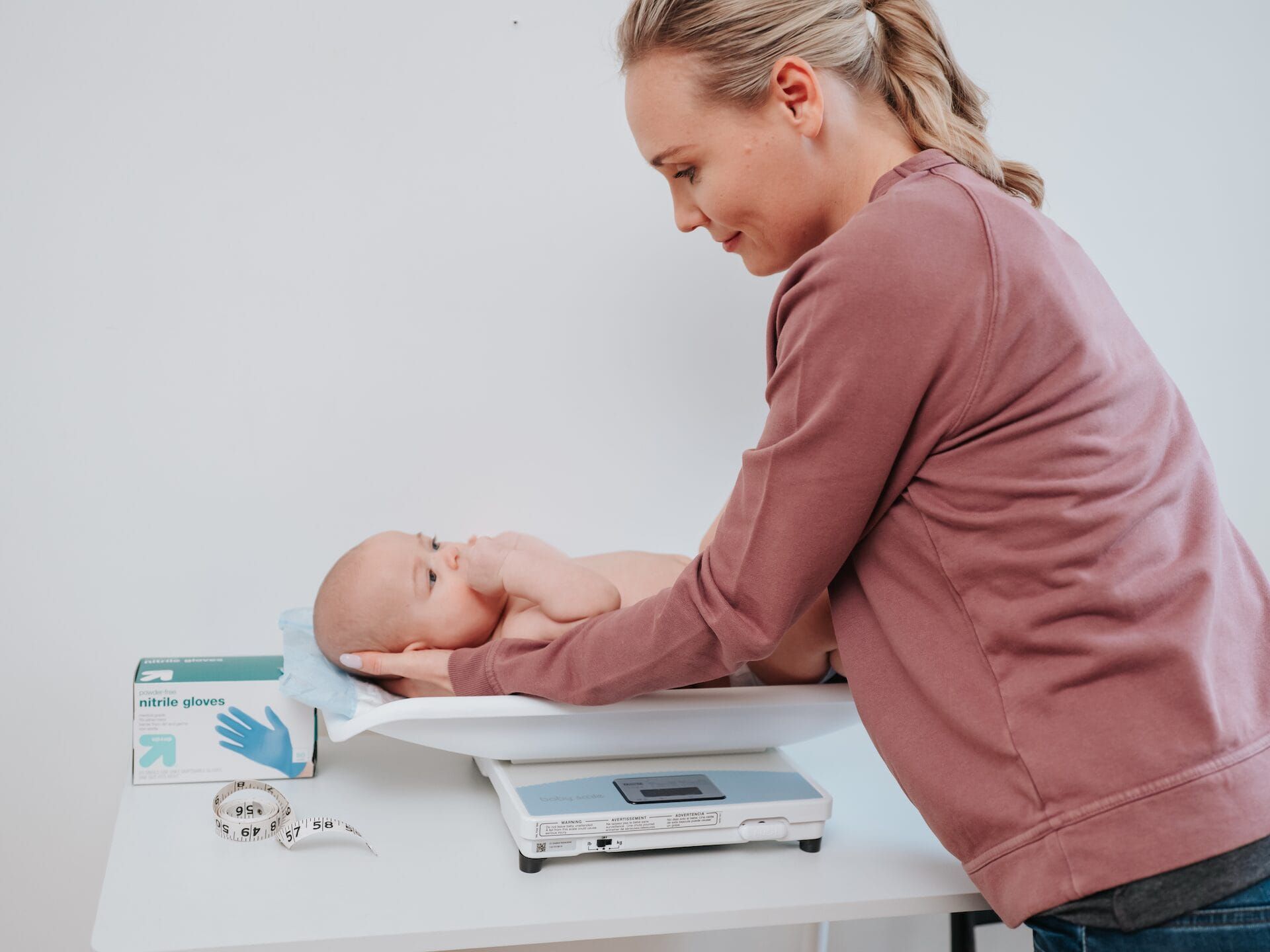How to Weigh Your Baby at Home

You probably know the routine for your baby’s wellness visits: The nurse has you undress your baby to be weighed on the office scale. Your pediatrician closely tracks your baby’s weight because growth is an important measure of your baby’s development and nutrition in the first few months.
Did you know that you can utilize a scale at home? Weighing your baby at home is a good way to monitor your baby’s growth as well as determine how much he or she has consumed during a feeding.
What baby scale should I use?
There are several baby scales on the market today for parents and caregivers to use at home. These baby items became especially popular after the COVID-19 pandemic made regular checkups difficult for families. You can source scales specifically designed for infants from a medical supplier, but it’s not necessary. They are also widely available on Amazon and at stores that sell baby gear, like Wal-Mart and Target.
You can also use a kitchen scale or bathroom scale, but make sure they are able to calculate weight down to the ounce, not just to a fraction of a pound. Using a scale designed specifically for infants is the best way to ensure the most accuracy.
Weighing your baby with a baby scale
Here are the steps you should follow to track how much your baby consumes during feedings with a scale designed specifically for infants:
- Record the pre-feeding weight: Before the feeding, remove any heavy clothing or blankets and place your baby on the scale. Record the weight.
- Feed your baby: Feed your baby as usual, whether through breastfeeding or bottle feeding.
- Record the post-feeding weight: After the feeding has finished, place your baby on the same scale. Make sure they are wearing the same amount of clothing and layers as during the pre-feeding measurement. Record the weight.
- Calculate the difference: The final step requires some quick math. Subtract the pre-feeding weight from the post-feeding weight. The difference represents the approximate amount of milk your baby consumed.
Keep in mind that this method provides an estimation and may not be necessary for every feeding. If you have concerns about your baby’s feeding or weight gain, it’s best to consult with your pediatrician for personalized guidance.
